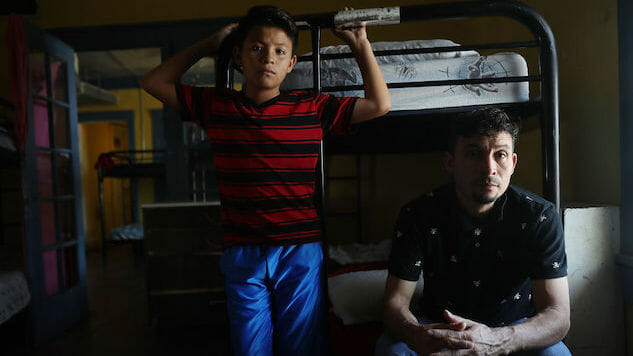One Man Is Making Children Detention Centers Worse Than We Ever Knew
Photo by Joe Raedle/Getty
On Sunday, the New York Times published a report on Southwest Key Programs head Juan Sanchez. He’s a self made-man, raised on the Mexican border in a house with so many other children that he didn’t have a bed of his own. He grew up in poverty but managed to earn three degrees, attended Harvard and opened his aforementioned nonprofit back in his hometown. He’s the epitome of the American Dream—corruption included.
It started in the Obama era, as unaccompanied minors began crossing the border in bigger numbers. Sanchez saw that as a business opportunity. The kids had to go somewhere, after all, so he established his company as the premier housing solution for migrant children. The Trump administration found it only natural to continue using Sanchez’s nonprofit charity for its family separation plans. He’s made himself, and Southwest Key Programs, integral in executing those government policies.
According to the Times’ report, Southwest shelters more migrant children than any other organization. Of the 14,000 minors detained across the nation, Sanchez’s organization is overseeing 5,000 of them across 24 sites. One of those is a derelict Walmart Supercenter that’s been subject to criticism for, surprise, being unfit to house children. It’s nearing capacity, and only continuing to fill—Sanchez, or El Presidente as he calls himself, counts the dollars he makes using the filled beds in his shelters. The Times’ headline says it best: He’s built an empire, with detained migrant children as the bricks. Instead of using profits to improve the shelters, Sanchez and his friends are all taking a bigger cut for themselves.
Sanchez makes about $1.5 million a year for running his nonprofit. His daughter, brother-in-law, wife and childhood friend are all employed by the company, too. The latter was convicted of embezzlement, and Sanchez kept them on in spite of the charges. It appears he could care less what his employees do, so long as his money keeps coming in.
Sanchez is actually notorious for not vetting his employees. Southwest inflated so quickly that it needed temporary workers to fill all its positions, which caused Sanchez to significantly walk back background checks. He missed a deadline to submit those employee background checks, calling the incident a “very small, minor thing.” The impact was far from minor. Reports show that Southwest’s temporary workers were abusing the children they were tasked with protecting. In July, a Phoenix shelter employee was accused of molesting a girl. In September another worker in Arizona, who was HIV-positive, was convicted of sexually abusing seven boys.
-

-

-

-

-

-

-

-

-

-

-

-

-

-

-

-

-

-

-

-

-

-

-

-

-

-

-

-

-

-

-

-

-

-

-

-

-

-

-

-








































